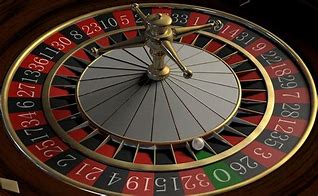Pascal's wager 2/4: On the likelihood that a given religion is true
If God is, who is?
One of two things: "God is, or he is not." This is an irrelevant, even smoky way of approaching the question of God's existence. It can only be reduced to an alternative if one specifies which God one wants to talk about. Between "a Creative Force", pantheism and the "God of Christians", an infinite number of distinct divinities can be envisaged. However, for Pascal's wager to make sense, it is necessary to admit that it is quite probable that the soul is immortal, that we can influence our future in the afterlife from now on, that there are deities who observe us, judge us, reward or punish us, that rituals can arouse divine favours. This is, roughly speaking, what Pascal calls the god of philosophers. These implicit assumptions, which seemed weak at the time, are now perceived as rather far from the obvious. In order to complete his reasoning and reach the God of the Christians, Pascal then devotes almost half of his Thoughts to the apology of Christianity in order to build a fragile bridge between the god of the philosophers and the God of the Catholics. It is a question of overcoming a new pitfall: the longer the list of dogmas - and Catholicism is not stingy about it - the greater the probability of being wrong.
In the exploitation of the Pascal's wager for propaganda purposes, the approach is often simplified. Since believing in God is not enough to win paradise, the real issue is the faith that saves, hence Catholicism. Under a disguise, the question asked is in fact "Do you adhere to the true faith?".
Monotheisms
Pascal suggests that the probability of God's existence is ½. This assessment, conceded to people who might have doubts, is questionable. While the question of divine existence can be answered with a single word, it takes an entire library to describe each monotheism, which consists of a multitude of assertions whose veracity raises so many questions.
Christianity is only the fourth monotheism, after
- the cult of Aten of Pharaoh Akhenaten,
- Zoroastrianism, preached by Zarathustra, whose creator god is called Ahura Mazda,
- and Judaism, whose god, called Yahweh, is said to have revealed himself to Moses.
He is not the last since the fifth is Islam, whose god is called Allah. Why should the fourth be truer than the first or the fifth? By making God the creator of Evil, monotheisms are tainted by internal contradictions that discredit them and make them unlikely.
It was not God who created the world in seven days, but men created five different unique Gods! Christianity is divided into many different religions: Catholicism, Orthodoxy, Anglicanism, as well as a multitude of Protestant currents and various sects, which leaves much more room for error than for truth.
Since, on a global scale, each religion is clearly a minority, the vast majority of believers are necessarily in error. But, naturally, it is the other beliefs that are wrong. All other religions were created by man, but ours is exceptional because it was created by God himself. Mired in a network of cultural conditioning, the believer allows himself to be carried along by religious conformism. Wearing doctrinal glasses greatly narrows his field of vision.
Faith in absolute truth is the expression of an excessive pretension. Pascal's approach is typical of philosophers who bring everything back to certain peculiarities of the culture in which they are immersed. A widespread form of ethnocentrism consists in making the whole world revolve around one's religion, in the way Ptolemy made the sun and the celestial spheres revolve around the earth. In order to gain objectivity, one has to step back.
Ongoing globalisation also affects cultural conceptions. In the long term, a more relative perception of religions will necessarily have to be established. One might wonder why the majority of gods are sexist. I can see only one explanation: religions were created by male human beings.
The number of religions is unlimited
The human imagination has filled the sky with the most diverse deities. Each particular culture honours its own and blames others. Is God single or multiple, personal or impersonal, unchanging or evolving, caring or indifferent, all-powerful or limited, distinct from or confused with the universe?
After death, will we live eternally, temporarily, cyclically in reincarnations, or will we disappear? Will we live in the Kingdom of the Dead, the Kingdom of the Ancestors, the Kingdom of the Underworld, the Kingdoms of the gods, the Kingdom of God, or are there other outcomes, e.g. a Paradise Democracy, a Perfect City? Will we preserve a body, a sensibility, an affectivity, an individuality, a conscience, a freedom? Can we influence our fate in the afterlife from the earth? By what rites, by what practices? For example, in Buddhism, there is neither God nor gods: the question of Pascal is unrelated to the ultimate meaning of existence, which is the management of suffering and evil.
How many distinct and incompatible religions are there? Taking into account past, present and future religions, they are innumerable. Like civilisations, religions are also deadly. The first monotheism, the cult of Aten of Pharaoh Akhenaten, was ephemeral. The second, Zoroastrianism, after having developed in ancient Persia, was considerably weakened. The third, Judaism, was divided into fratricidal factions which included the different forms of Christianity and Islam.
In view of the fact that human beings (homo sapiens) have existed for 300,000 years, today's religions are extremely young (Christianity is only 2,000 years old). The rate of renewal of religions is sufficiently high to raise doubts as to whether any of them are immortal. A radical change in the economic system upsets the value system. In the Neolithic period, the practice of agriculture upset religious practices in order to bring Heaven into line with the new way of life. Today, the development of science and technology may be such a revolution that it could durably transform cultures, civilisations and religions.
To those who claim that religions are limited in number, I challenge them to make an exhaustive list: on the one hand, the beliefs of the Palaeolithic and Neolithic eras could not be reconstructed; on the other hand, new religious currents are constantly emerging. In addition, many people distance themselves from the doctrine they have been taught, so that the belief system they adhere to is personal to them.
Finally, why shouldn't the ultimate explanation be hidden among possibilities that humans can't even consider? How can the religions of extraterrestrial civilisations be taken into consideration? Is their number nil, finite or infinite? There is no guarantee that the list, even when extended in this way, contains the true faith. Man has great difficulty in accepting his ignorance. The number of religions is potentially infinite.
The likelihood that a given religion is true
The probability in question here can be broken down into a number of conditional probabilities, as outlined below:
p(A4 | A1 and A2 and A3) = probability that the true God is the God of the Bible and that the faith that saves is Catholicism, knowing that our soul is immortal, that God exists, that our moral behaviour has an influence on our future in the afterlife and that God judges, rewards or punishes us.
The probability discussed in this article is the product of these conditional probabilities
p = p(A1)·p(A2 | A1)·p(A3 | A1 and A2)·p(A4 | A1 and A2 and A3)
Each of the four factors must be non-zero for the product to be non-zero. Thus, the existence of God is not sufficient to found the argument of the Pascal’s wager.
Bearing in mind that
- Eternal hell is a disproportionate and therefore unjust punishment;
- a loving mother does not engage in cruel blackmail, and it is improbable that God behaves less well than she does;
- no mother would throw some of her children into hell,
- the probability that God will reward or punish us is nil:
p(A3 | A1 and A2) = 0
As developed above, since the number of religions is potentially infinite, the probability that the Bible is true is nil:
p(A4 | A1 and A2 and A3) = 0
Moreover, the contradictions contained in the Bible reinforce the result:
[Matthew 13:41-42] «The Son of Man will send out his angels, and they will weed out of his kingdom everything that causes sin and all who do evil. They will throw them into the blazing furnace, where there will be weeping and gnashing of teeth.»
[Matthew 5:44] «But I say to you, love your enemies, bless those who curse you, do good to those who hate you, and pray for those who spitefully use you and persecute you».
The precept "Do as I say, but not as I do" is hardly convincing.
The probability that a given religion is true is zero.
Religious relativism is supported by the gods themselves, who have striven to perform "miracles" in all religious communities, however diverse they may be. By choosing a doctrine at random, for example that of the family where nature gave birth to us, the probability that it is true is therefore nil. Claiming that "a given religion has a positive probability of being true" is an act of faith that does not stem from reason.
Pascal's wager.
If, as we have established, the probability of obtaining an infinite winning is nil, the expectation of winning is indeterminate, and Pascal's wager is ruined.




Comments
Post a Comment